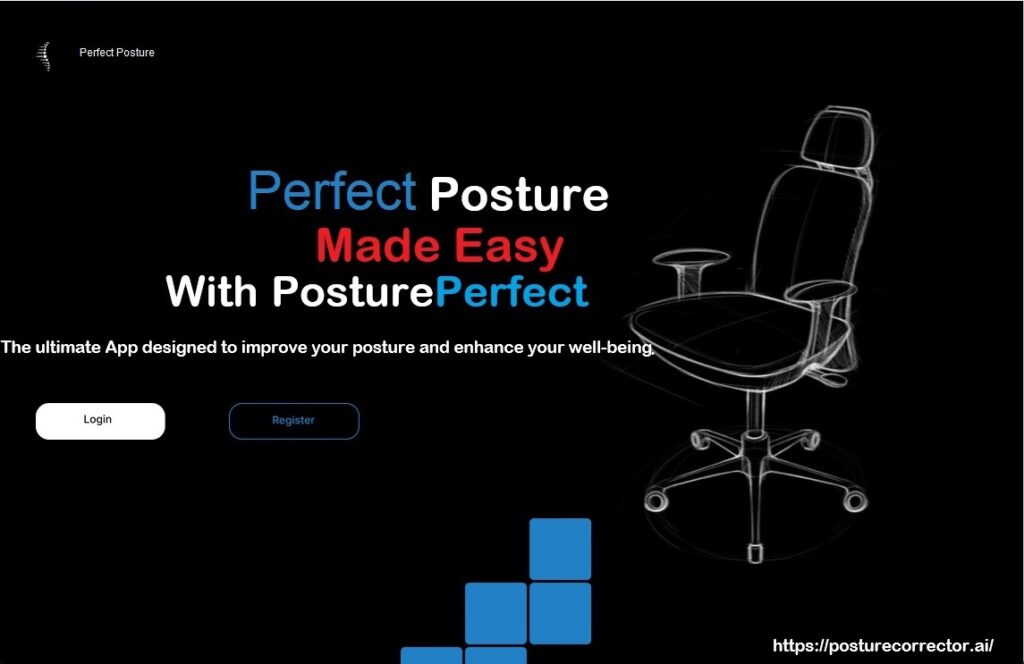Introduction
When it comes to improving mental health, people often think about therapy, meditation, and exercise. While these strategies are undoubtedly beneficial, one often-overlooked factor is posture. The way you sit and stand can profoundly impact not only your physical health but also your emotional and psychological wellbeing. Research suggests that slouching, hunching, or maintaining poor posture for extended periods can negatively affect mood, focus, and even stress levels.
In this blog post, we’ll explore the connection between posture and mental health, backed by research and expert opinions. We’ll also introduce PosturePerfect, a posture correction software designed to help users achieve a healthier posture. PosturePerfect is available for free download, with full features accessible for just £9.99 per month and a five-day free trial—cancel anytime, with a money-back guarantee.
1. How Poor Posture Impacts Mental Health
The Link Between Posture and Emotional State
Research shows that body language, including posture, influences our emotions. When we slouch or hunch over, we unconsciously send signals to our brain that mirror feelings of sadness, stress, or low self-esteem. This phenomenon is known as “embodied cognition,” which suggests that our physical stance can shape our mental state.
Studies have also found that people who maintain an upright posture feel more confident, energetic, and resilient than those who slouch. For instance, a study published in the journal Health Psychology discovered that people who sat up straight reported feeling more enthusiastic and less fearful during a task compared to those who were slouched.
Did You Know? Correcting posture can improve your mood by reducing fatigue and boosting your self-confidence.
Posture, Stress, and Anxiety

Another aspect of mental health affected by posture is stress. When you hunch over or slump, it restricts breathing, reducing oxygen intake. This can heighten stress and anxiety levels, leading to poor concentration and irritability. On the other hand, sitting up straight allows for deeper breathing, which can promote relaxation and reduce stress.
If you’re experiencing constant stress, poor posture could be an underlying contributor. Using a tool like PosturePerfect can help remind you to adjust your posture throughout the day, reducing strain on both your body and mind.
Long-Term Mental Health Effects of Poor Posture
Prolonged poor posture can contribute to chronic stress, which in turn affects the brain. Chronic stress is linked to increased levels of cortisol, a hormone associated with anxiety and depression. As a result, constantly maintaining poor posture may make you more susceptible to mental health issues over time.
2. Benefits of Good Posture for Mental Wellbeing
Improved Mood and Self-Esteem
Good posture doesn’t just benefit physical health—it can have a positive impact on mood and self-esteem. When you sit or stand up straight, you’re more likely to feel proud and confident. This boost in self-assurance can translate into improved mental wellbeing and a more positive outlook on life.
In fact, studies have found that people who practice good posture are less likely to experience negative emotions and have better self-esteem. Regular use of PosturePerfect can help you develop this habit, giving you reminders and feedback on your posture to make these benefits part of your daily routine.
Enhanced Focus and Productivity
An often-overlooked advantage of proper posture is its effect on focus and productivity. Slouching can cause physical discomfort, which can distract you from your work or daily activities. In contrast, good posture can help you stay comfortable and focused, improving productivity. This is particularly important for people who work long hours in front of a computer.
Tip: PosturePerfect users report improved focus and productivity by receiving regular reminders to sit up straight, helping them stay engaged and comfortable during work hours.
Reduced Feelings of Depression
Maintaining an upright posture has been shown to reduce symptoms of mild depression. According to a study published in the journal Behaviour Therapy, individuals who sat up straight while completing tasks reported a decrease in negative emotions and an increase in positive affect.
If you find yourself experiencing low moods, practicing good posture can be a small but impactful way to lift your spirits. PosturePerfect is designed to help by alerting you whenever you’re slouching, encouraging healthier postural habits that benefit your mental health.
3. Using PosturePerfect to Improve Posture and Mental Health
Our software, PosturePerfect, was developed to help individuals improve their posture through real-time feedback. Here’s how it works and why it’s particularly beneficial for mental health:
- Real-Time Alerts: PosturePerfect uses posture-detection technology to monitor your posture while you sit or stand. If you start slouching or hunching, it sends a gentle reminder to adjust your posture.
- Flexible Settings: You can customize alert settings to fit your needs. This allows you to develop good postural habits without feeling overwhelmed.
- Tracking Progress: PosturePerfect allows you to track your progress over time, giving you insights into how your posture has improved and the benefits it’s having on your overall health.
With a five-day free trial and a subscription of just £9.99/month, you can start experiencing the benefits of improved posture right away. Our money-back guarantee ensures that you have nothing to lose and everything to gain.
4. Simple Posture Exercises to Boost Mental Health
Incorporating posture-correcting exercises into your routine can help you further improve your mental wellbeing. Here are a few simple exercises to try:
Shoulder Rolls

- Instructions: Sit or stand up straight and roll your shoulders backward in a circular motion. Repeat 10 times.
- Benefits: Shoulder rolls relieve tension in the upper back, neck, and shoulders, which can help reduce stress.
Chin Tucks
- Instructions: While sitting or standing, pull your chin back gently, aligning it with your spine. Hold for 5 seconds, then release. Repeat 10 times.
- Benefits: Chin tucks help align the neck with the spine, which can prevent slouching.
Seated Back Extensions
- Instructions: While seated, place your hands behind your head and gently arch your back. Hold for 5 seconds, then return to a neutral position. Repeat 10 times.
- Benefits: This exercise strengthens the muscles supporting your spine, promoting better posture and reducing slouching.
5. Tips for Maintaining Good Posture Throughout the Day
- Set Up an Ergonomic Workspace: Make sure your chair, desk, and monitor are at the correct heights to support good posture.
- Take Frequent Breaks: Stand up and stretch every 30 minutes to relieve any tension.
- Use Posture Reminders: Set reminders on your phone or try PosturePerfect to keep you on track.
- Practice Mindful Breathing: Mindful breathing can help you remain aware of your posture while also reducing stress.
Conclusion
The impact of posture on mental health is clear: good posture can enhance your mood, reduce stress, and improve focus, while poor posture can contribute to feelings of depression, anxiety, and fatigue. With posture correction software like PosturePerfect, achieving and maintaining healthy posture becomes more accessible.
PosturePerfect is free to download, with full features available for just £9.99 per month. Start with our five-day free trial, and enjoy the confidence of a money-back guarantee if you’re not satisfied. Transform your mental and physical wellbeing by making posture a priority today.


Leave a Reply